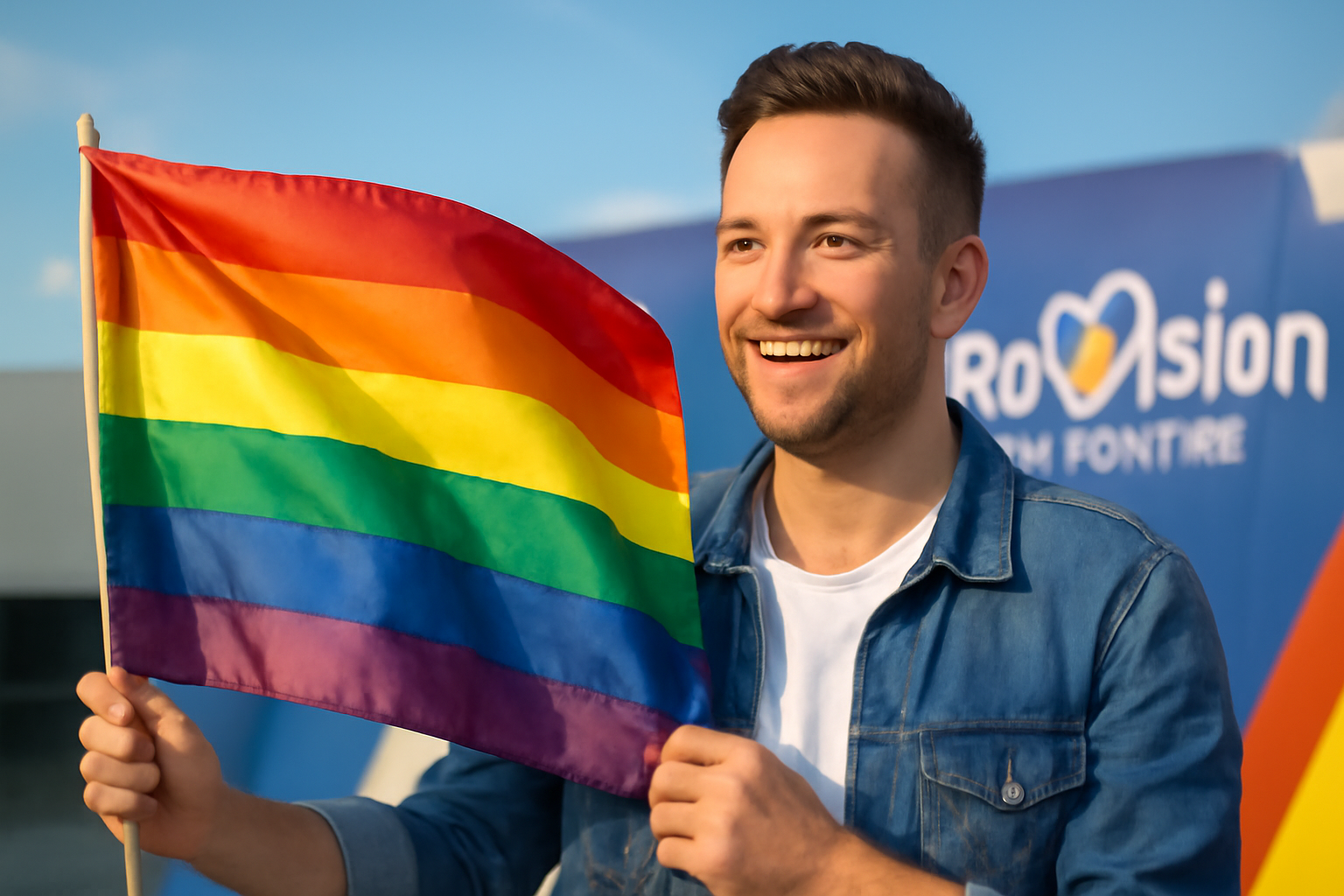
The annual Eurovision Song Contest has long been celebrated as a beacon of inclusivity and diversity, drawing in fans from all over the world. As a platform that showcases musical talent across various cultures and identities, it is often seen as a safe space for the LGBTQ+ community. However, recent changes to its policy regarding the display of flags during the contest have raised concerns and sparked a significant debate.
Background on Eurovision and Its Support for LGBTQ+ Representation
Eurovision is not just a song contest; it is a cultural phenomenon that has been running since 1956. Over the decades, it has gained a massive following among LGBTQ+ individuals and allies, largely due to its celebration of diversity and acceptance. Many past contestants have identified as LGBTQ+, and the event has provided a platform for them to express themselves openly.
Given this history, it is no surprise that Eurovision is often associated with symbols of LGBTQ+ pride, such as the rainbow and trans flags. These symbols have been visible at many Eurovision events, both among fans and sometimes even on stage.
The Controversial Flag Policy
In recent developments, Eurovision organizers announced a policy that restricts the display of certain flags during the contest, specifically mentioning political and non-national flags. Unfortunately, this new rule has been interpreted to include pride and trans flags, causing significant concern among fans and advocates of LGBTQ+ rights.
The official statement from the organizers explains that the policy aims to prevent the promotion of political messages and maintain the event's focus on music. However, many argue that pride and trans flags are not political symbols but rather representations of identity and acceptance.
Reactions from the LGBTQ+ Community
The announcement of this policy has been met with a strong reaction from the LGBTQ+ community. Many feel that this decision undermines the very spirit of inclusivity that Eurovision is known for. Social media platforms have been abuzz with discussions, often criticizing the decision and calling for a revision of the policy.
Advocates point out that the removal of pride flags feels like a step backward in the fight for visibility and equality. For many, Eurovision has been a place where they can express themselves freely and be part of a community that embraces diversity.
Statements and Clarifications
In response to the backlash, Eurovision organizers have attempted to clarify their stance. They emphasize that the intention is not to alienate any group but to ensure that the contest remains non-political. They have also stated that they are open to dialogue with community leaders to better understand the impact of the policy.
Despite these statements, the controversy continues to resonate, with many calling for more tangible actions to demonstrate Eurovision’s commitment to the LGBTQ+ community.
The Importance of Symbols in LGBTQ+ Advocacy
Symbols such as the pride and trans flags play a critical role in LGBTQ+ advocacy. They are not just mere banners; they signify a history of struggle, resilience, and pride. For many, these symbols are an affirmation of their identity and a reminder of the progress that has been made over the years.
The exclusion of these flags from such a prominent event sends a disheartening message to LGBTQ+ individuals who look to Eurovision as a source of joy and belonging.
Moving Forward
As Eurovision approaches, the conversation around its flag policy is expected to continue. It is an opportunity for the organizers to reaffirm their commitment to inclusivity and perhaps reconsider the implications of their policies.
For fans and participants alike, Eurovision remains a powerful platform to celebrate diversity in all its forms. The hope is that future decisions will reflect this ethos and continue to make Eurovision a welcoming space for everyone, regardless of their identity.
In conclusion, while the flag policy has raised questions, it also highlights the ongoing dialogue about representation and inclusion in global events. As the world changes, so too must the spaces in which we gather to celebrate our shared humanity.
Related Posts
Triumphant Trans Woman Wins Legal Battle and Inspires Others to Stand Up for Their Rights
Breaking new ground: a landmark victory in transgender rights After battling in courtrooms and enduring endless challenges, Diana Portillo, a transgender woman, has secured a monumental victory in her decade-long fight against workplace discrimination. The result? Nearly $1 million awarded in a historic settlement. But this isn't just a win on paper—it represents a powerful precedent in combati [...]
Pride Month in Latin America: Protests and Demands for Equality
**Celebrating Pride and advocating LGBTQ+ rights in Latin America** Pride Month in Latin America was a lively mix where celebration met activism. Communities united, not just throwing a party but making a stand—demanding equality and pushing governments toward better protection and rights recognition. Throughout Latin America, pride events erupted in marches and cultural displays, each with a c [...]
Transgender Erasure Actions Implemented by National Park Service
```html Trump administration's impact on national park service and transgender recognition The Trump administration made notable moves in undermining transgender representation, which included directing agencies like National Park Service not include "T" and "Q" when they refered “LGBTQ” in any official communication. This move seems part a broader plan by this administration aimed at reducin [...]